Table of Contents[Hide][Show]
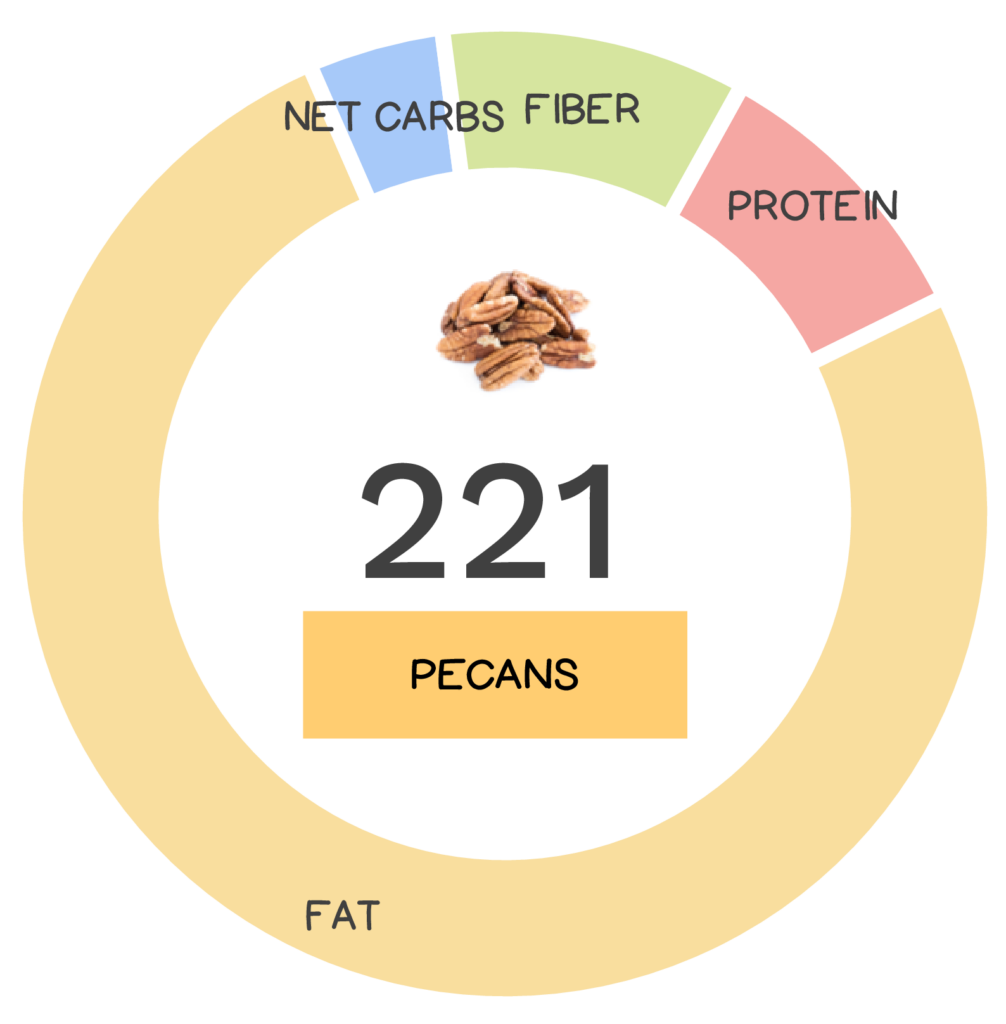
Pecans are a nut synonymous with desserts. I’m thinking butter pecan anything, pecan clusters, pecan tarts, praline and most famously the American classic – pecan pie, but this nut has so much more to offer! With its crunchy texture, and rich, sweet, buttery flavor, this nut makes for a great snack food, a phenomenal nut butter, and adds depth and crunchiness to savory dishes like salads and “breading” for fish, all while being a great source of nutrition. Let’s just say this positive nut “pe-CAN” do it all!
The word “pecan” derives from an Algonquin word referring to hickory nuts, walnuts and pecans, which makes sense since pecans belong to the hickory plant family!
The pecan tree, Carya illinoinensis, is a member of the hickory plant family that is native to the Southern United States and Mexico. Wild pecans were widely consumed and traded by Indigenous peoples before being introduced to Spanish explorers in the 16th century. In fact, the word “pecan” derives from an Algonquin word referring to hickory nuts, walnuts and pecans. This nut was considered a delicacy among colonial Americans but was only recently domesticated, circa the 1880s, since pecan trees are slow to mature and bear fruit. Genetic studies have shown that today’s commercial pecan varieties are a mix of water hickory, nutmeg hickory and bitternut hickory.
Pecans are not actually nuts but are in fact seeds of the tree’s fruit, which is a drupe (aka stone fruit)!
And, even though pecans are a popularly consumed “nut”, in fact they are not technically nuts in the botanical sense of the word. (Isn’t that nuts?) Pecans are actually seeds of the tree’s fruit which is a drupe, or a stone fruit, as it is more commonly known. Stone fruits, like peaches and cherries, have a single stone or pit surrounded by a husk. The difference with pecans is that instead of eating the flesh of the fruit, we eat the seed inside the pit, which is considered a culinary “nut”.
Together Mexico and the United States account for over 90% of global pecan production!
Mexico is the world’s leading producer of pecans, followed by the US where they are cultivated primarily in Georgia, New Mexico, and Texas. Together, both countries account for over 90% of global production! Aside from consuming pecans, the wood from pecan trees is used in furniture and flooring, and as flavoring for smoked foods. While everyone seems to agree that this is one great “nut”, the one thing people can’t seem to agree on is the correct way to pronounce the word. Is it pee-KAHN, pick-AHN, PEE-can, PEE-kahn, or puh-KAHN? No matter how you say it, this “nut” will taste just as sweet.
Learn How All Foods Can Fit into a Healthy Diet
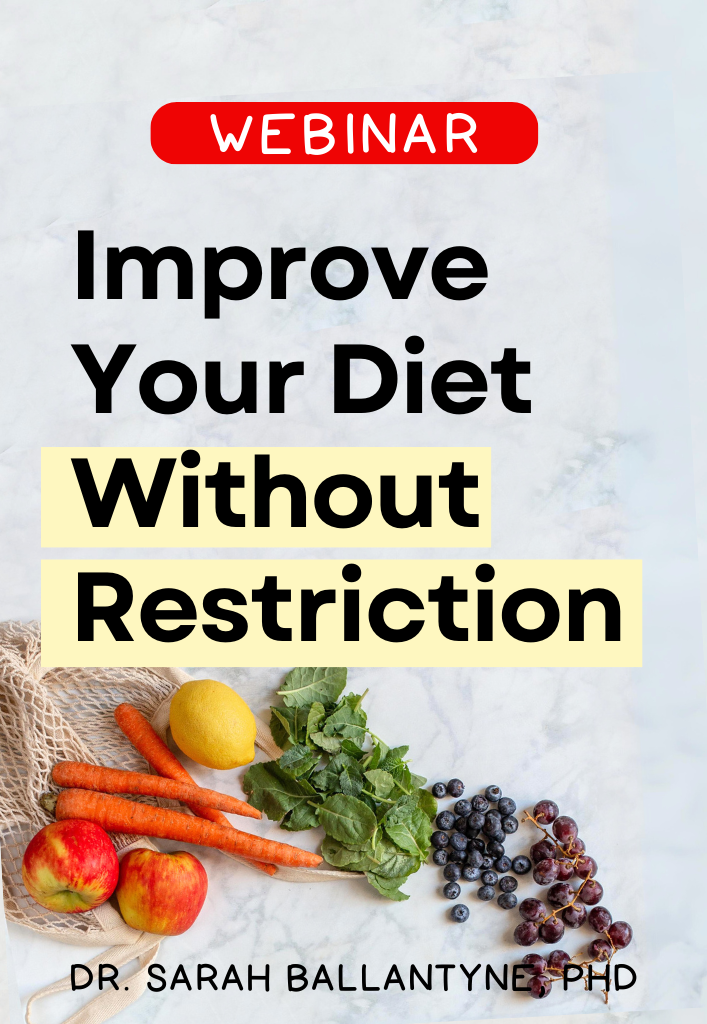
Improve Your Diet Without Restriction
Learn how to take a non-restrictive approach to eat nutrients, enjoy food, and live well.
In this webinar, Dr. Sarah will teach you how use Nutrivore to boost nutrient intake without drastic changes, improve your relationship with food, evaluate your diet’s quality, and adopt a balanced, moderation-focused mindset for long-term success. Say goodbye to the guilt-blame cycle and discover a nourishing approach to eating.
Buy now for instant digital access.
Nutrivore Score for Pecans – 221
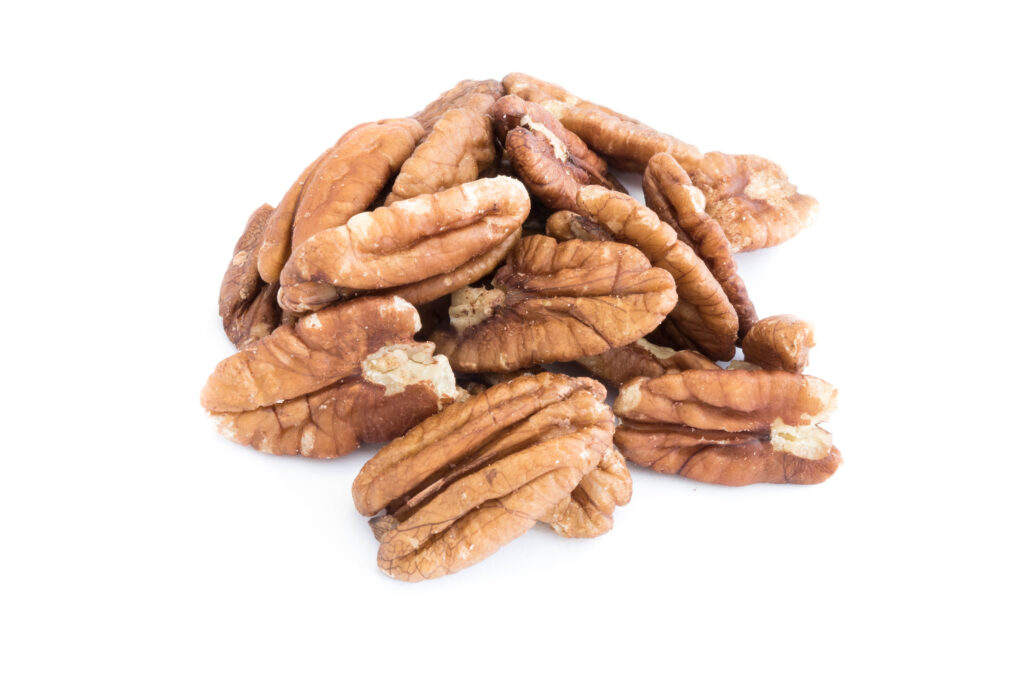
Pecans have a Nutrivore Score of 221, making them a medium nutrient-dense food! Plus, it is a low-carb food; pecans have 1.2 grams of net carbs per 1-ounce serving!
Per serving, pecans are a best source (>50% daily value) of manganese, monounsaturated fatty acids (MUFA), polyphenols, and vitamin E; an excellent source (20-50% daily value) of copper, linoleic acid, and vitamin B7 (biotin); and a good source (10-20% daily value) of alpha-linolenic acid (ALA), dietary fiber, vitamin B1 (thiamin), and zinc.
Ditch Diets. Embrace Nutrients. Start with this FREE Guide.
Sign up for the free Nutrivore Newsletter, your weekly, science-backed guide to improving health through nutrient-rich foods — without dieting harder —and get the Beginner’s Guide to Nutrivore delivered straight to your inbox!

Pecan Nutrition Facts
One serving of pecans is standardized to 1 ounce or about 28 grams. To put this in perspective: one serving of pecans roughly equates to a palmful of nuts or approximately 19 pecan halves.
Pecan Nutrition Facts Per Serving
| Pecans, Raw | Nutrivore Score: 221 | Nutrient Density: Medium |
|---|---|---|
| Serving Size: 1 ounce (19 halves) | Protein: 2.6 grams | Net Carbohydrates: 1.2 grams |
| Calories: 193 | Total Fat: 20.2 grams | Dietary Fiber: 2.7 grams |
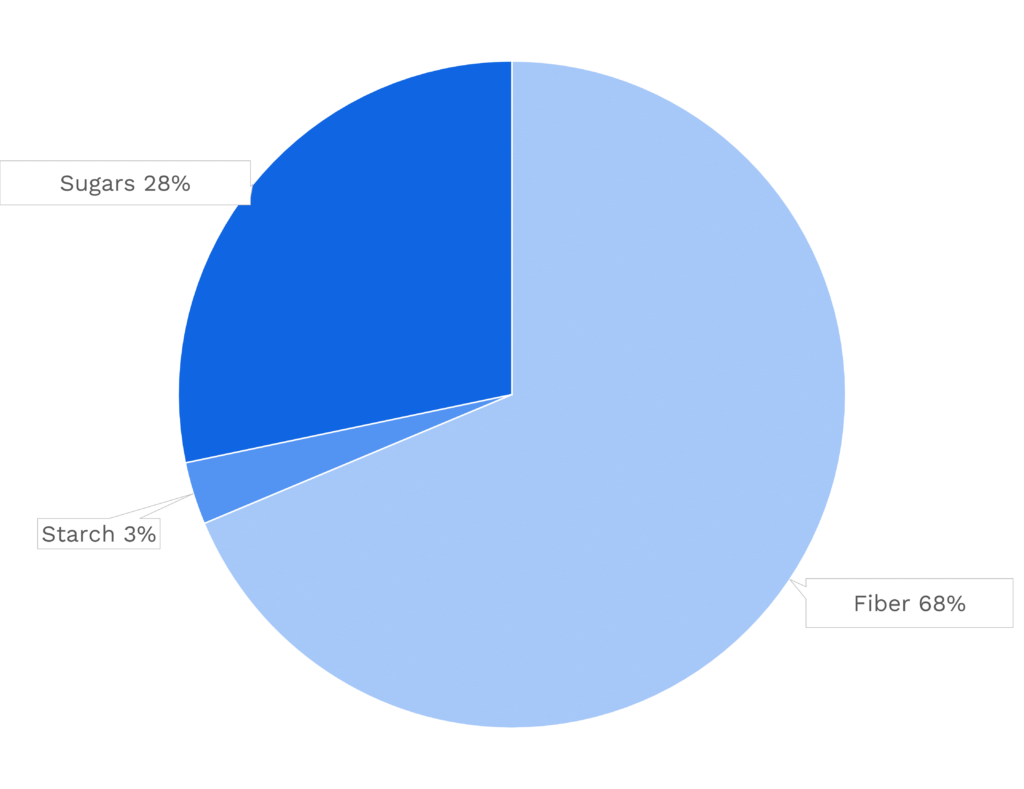
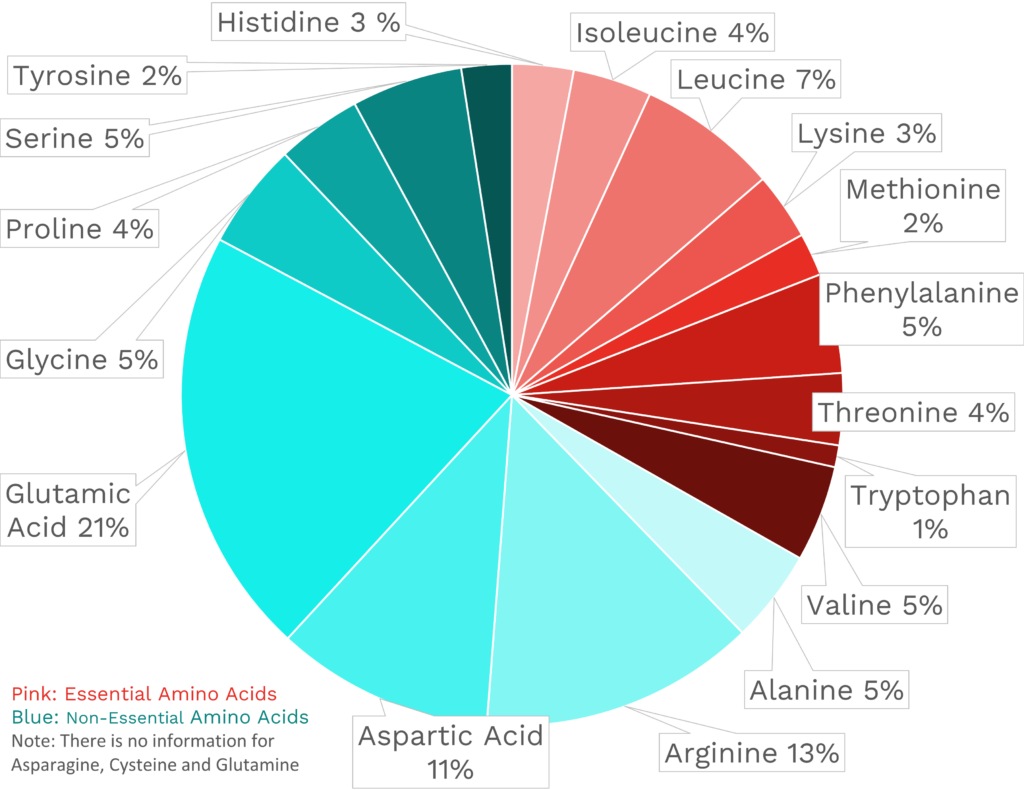
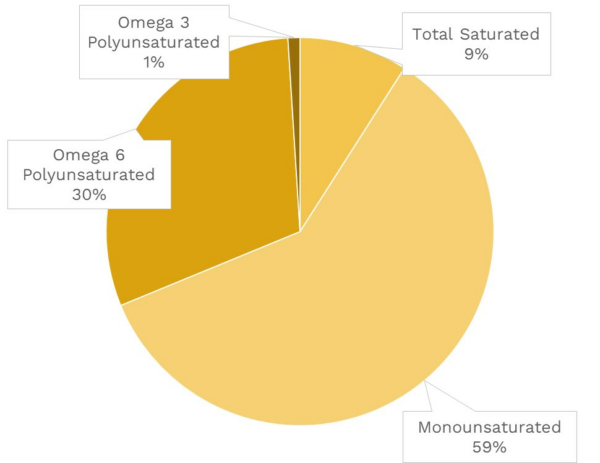
| VITAMINS | ||
|---|---|---|
| Vitamin A | 0.8 μg RAE | 0% DV |
| Vitamin B1 (Thiamin) | 184.8 μg | 15% DV |
| Vitamin B2 (Riboflavin) | 36.4 μg | 3% DV |
| Vitamin B3 (Niacin) | 0.3 mg | 2% DV |
| Vitamin B5 (Pantothenic Acid) | 0.2 mg | 5% DV |
| Vitamin B6 (Pyridoxine) | 58.8 μg | 3% DV |
| Vitamin B7 (Biotin) | 7.6 μg | 25% DV |
| Vitamin B9 (Folate) | 6.2 μg | 2% DV |
| Vitamin B12 (Cobalamin) | 0.0 μg | 0% DV |
| Vitamin C | 0.3 mg | 0% DV |
| Vitamin D (D2 + D3) | 0.0 μg | 0% DV |
| Vitamin E | 7.5 mg | 50% DV |
| Vitamin K | 1.0 μg | 1% DV |
| Choline | 11.3 mg | 2% DV |
| Myo-Inositol | ~ | ~ |
| CoQ10 | ~ | ~ |
| FUNCTIONAL FATS | ||
|---|---|---|
| MUFA | 11.4 g | 57% DV |
| ALA | 276.1 mg | 17% DV |
| EPA + DHA | 0.0 mg | 0% DV |
| CLA | ~ | ~ |
| Linoleic Acid | 5.8 g | 34% DV |
| MCT’s | 0.0 g | ~ |
| MINERALS | ||
|---|---|---|
| Calcium | 19.6 mg | 2% DV |
| Copper | 336.0 μg | 37% DV |
| Iodine | ~ | ~ |
| Iron | 0.7 mg | 4% DV |
| Magnesium | 33.9 mg | 8% DV |
| Manganese | 1260.0 μg | 55% DV |
| Phosphorus | 77.6 mg | 6% DV |
| Potassium | 114.8 mg | 2% DV |
| Selenium | 1.1 μg | 2% DV |
| Sodium | 0.0 mg | 0% DV |
| Zinc | 1.3 mg | 12% DV |
| PHYTONUTRIENTS | ||
|---|---|---|
| Carotenoids | 15.4 μg | ~ |
| Polyphenols | 524.1 mg | ~ |
| Phytosterols | 44.5 mg | ~ |
| Glucosinolates | ~ | ~ |
| Thiosulfinates | ~ | ~ |
| Betalains | ~ | ~ |
| AMINO ACIDS & PEPTIDES | ||
|---|---|---|
| Taurine | ~ | ~ |
| Ergothioneine | ~ | ~ |
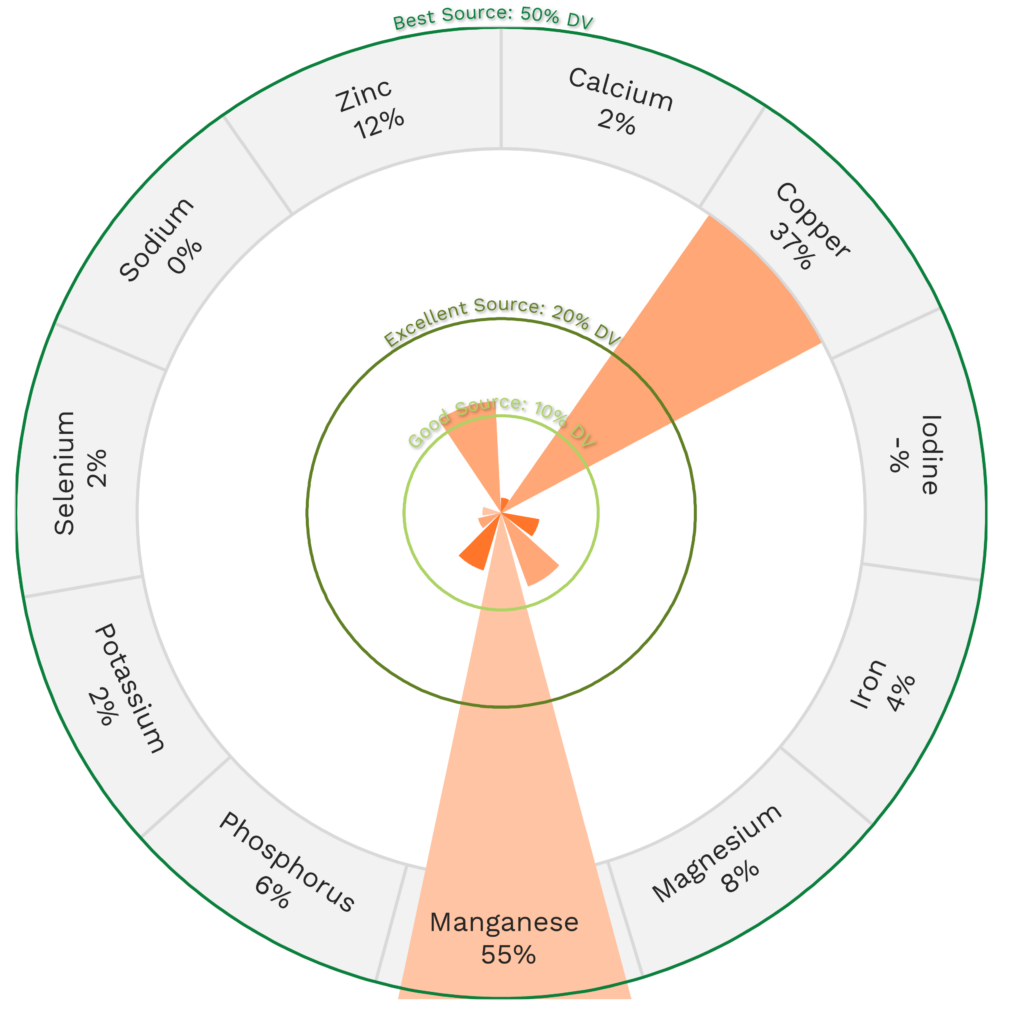
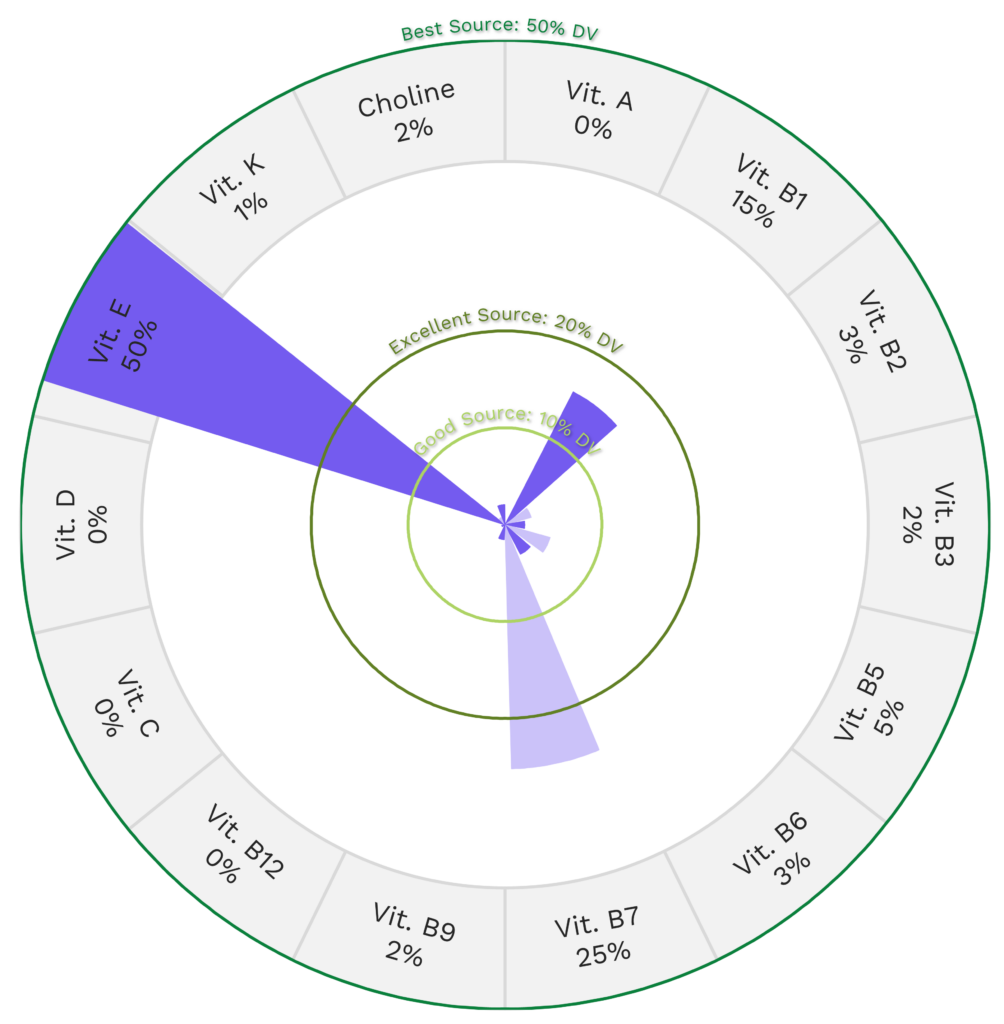
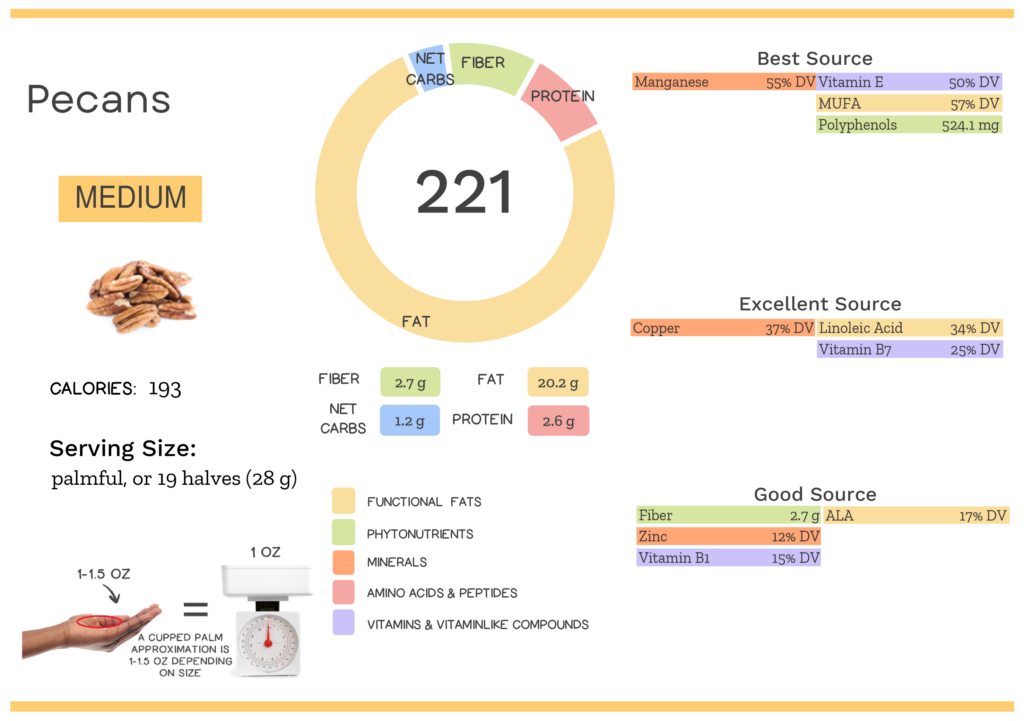
Pecan Nutrition Varies With Processing
The Nutrivore Score of pecans varies depending on processing.
| NUTRIVORE SCORE | |
|---|---|
| Pecans | 221 |
| Pecans, dry roasted, with salt added | 211 |
| Pecans, dry roasted, without salt added | 211 |
| Pecans, oil roasted, with salt added | 211 |
| Pecans, oil roasted, without salt added | 211 |
Impressed by all the NUT-rition in pecans? Maybe your friends will be too!
Health Benefits of Pecan Nutrients
Let’s take a closer look at all of the best and excellent source of nutrients found in a 1-ounce serving of pecans and see how they benefit our health.
Pecans Provide 524.1 mg of Polyphenols
Pecans are a best source of polyphenols, providing 524.1 mg of polyphenols per 1-ounce serving!
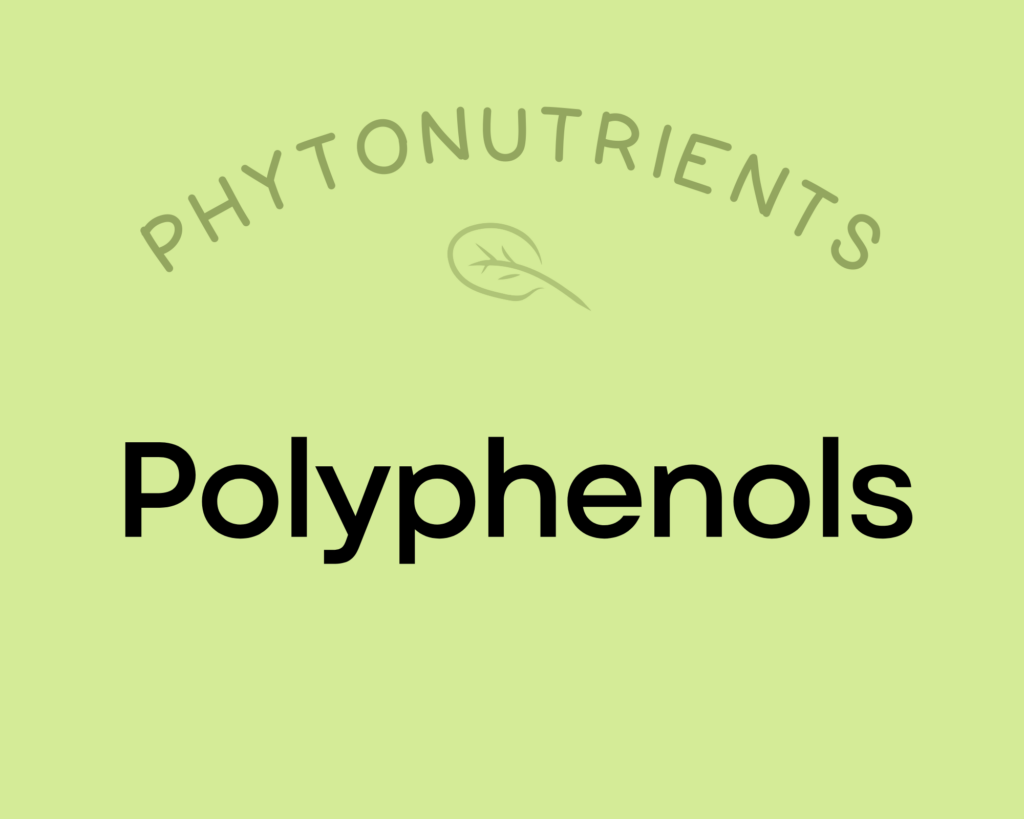
Polyphenols play a huge role in protecting against cancer, heart disease, diabetes, asthma, osteoporosis, neurodegenerative diseases, and other conditions associated with oxidative stress. In fact, a major reason foods like red wine and olive oil (as well as diets rich in both, such as the Mediterranean diet) show up as so beneficial may be due to their high polyphenol content! Along with chronic diseases, supplementing with polyphenols has been shown to protect against infections and reduce the signs of aging. Polyphenols exert their most potent effects by acting as antioxidants—preventing cellular damage by neutralizing hazardous oxygen radicals and improving cellular health as a result (which, in turn, benefits virtually every system in the body). As a result of their antioxidant properties, polyphenols also boost the immune system and protect against both chronic and acute diseases. In addition, polyphenols can help regulate enzyme function, stimulate cell receptors, modulate the functions of inflammatory cells (including T and B lymphocytes, macrophages, platelets, and natural killer cells), alter adhesion molecule expression, affect nerve cells and cardiac muscle cells, and exert antiviral effects. Learn more about polyphenols here.
Pecans Provide 57% DV Monounsaturated Fatty Acids (MUFA)
Pecans are a fantastic source of monounsaturated fatty acids (MUFA), providing 57% of the daily value per 1-ounce serving!
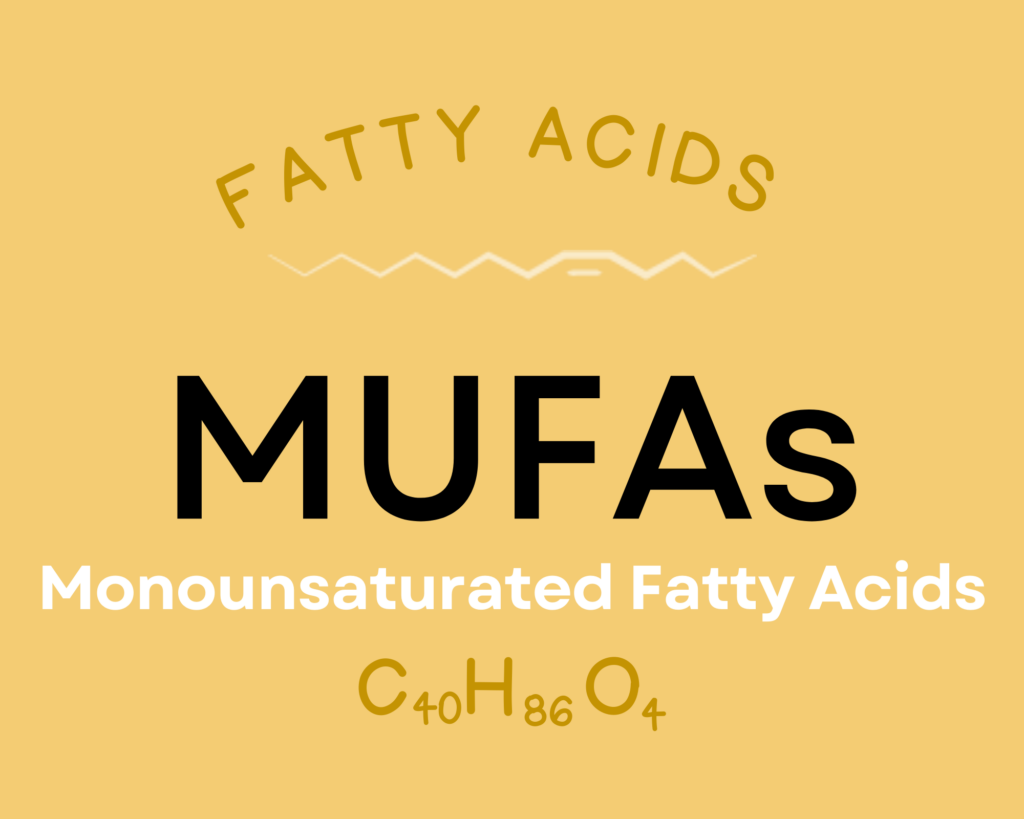
Monounsaturated fatty acids (MUFA), the most abundant of which is oleic acid, play an important role in cellular function due to its presence in phospholipids in cell membranes. Oleic acid is beneficial for cardiovascular health—both in reducing risk factors like high blood pressure, cholesterol, triglycerides, inflammation, and oxidative stress, and in reducing actual cardiovascular disease incidence and events. Oleic acid has even demonstrated anti-cancer activity, with an ability to inhibit the progression, proliferation, and metastasis of several types of cancer cells. Research shows this fat could benefit body weight regulation and obesity through its effects on energy metabolism and lipogenesis. In fact, human trials show that enriching diets with oleic acid leads to decreases in central obesity, abdominal fat, body weight, and food intake, while also possibly increasing energy expenditure! Oleic acid also possesses some benefits for diabetics—influencing genes and pathways involved in insulin signaling and glucose metabolism, as well as helping protect against some complications of diabetes, like diabetic retinopathy and atherosclerosis. Learn more about oleic acid here.
Pecans Provide 55% DV Manganese
Pecans are a wonderful source of manganese, providing 55% of the daily value per 1-ounce serving!
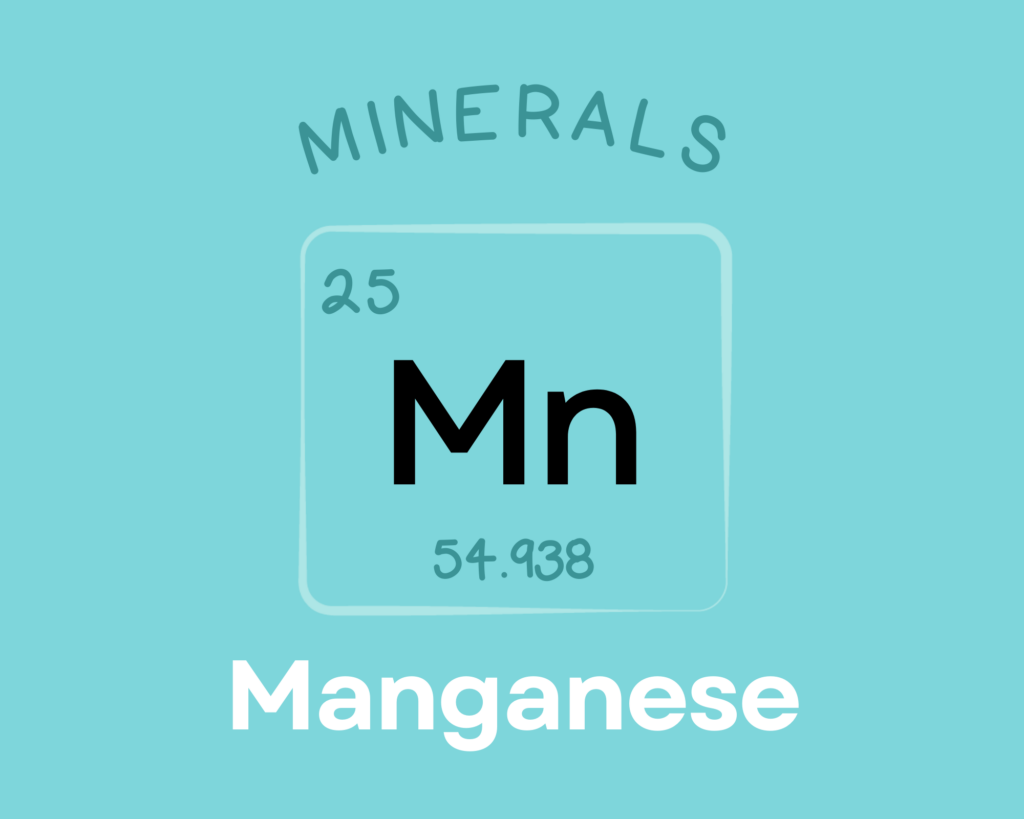
Manganese is an essential mineral that serves as a cofactor and component of numerous enzymes. Through these roles, it’s involved in carbohydrate metabolism, amino acid synthesis, gluconeogenesis, detoxification, lipid processing, free radical defense, bone and collagen formation, and wound healing. Although the research so far is limited, some evidence suggests that manganese can protect against osteoporosis and diabetes, and may even be involved in seizure disorders. Learn more about manganese here.
Pecans Provide 50% DV Vitamin E
Pecans are also a best source of vitamin E, providing 50% of the daily value per 1-ounce serving!
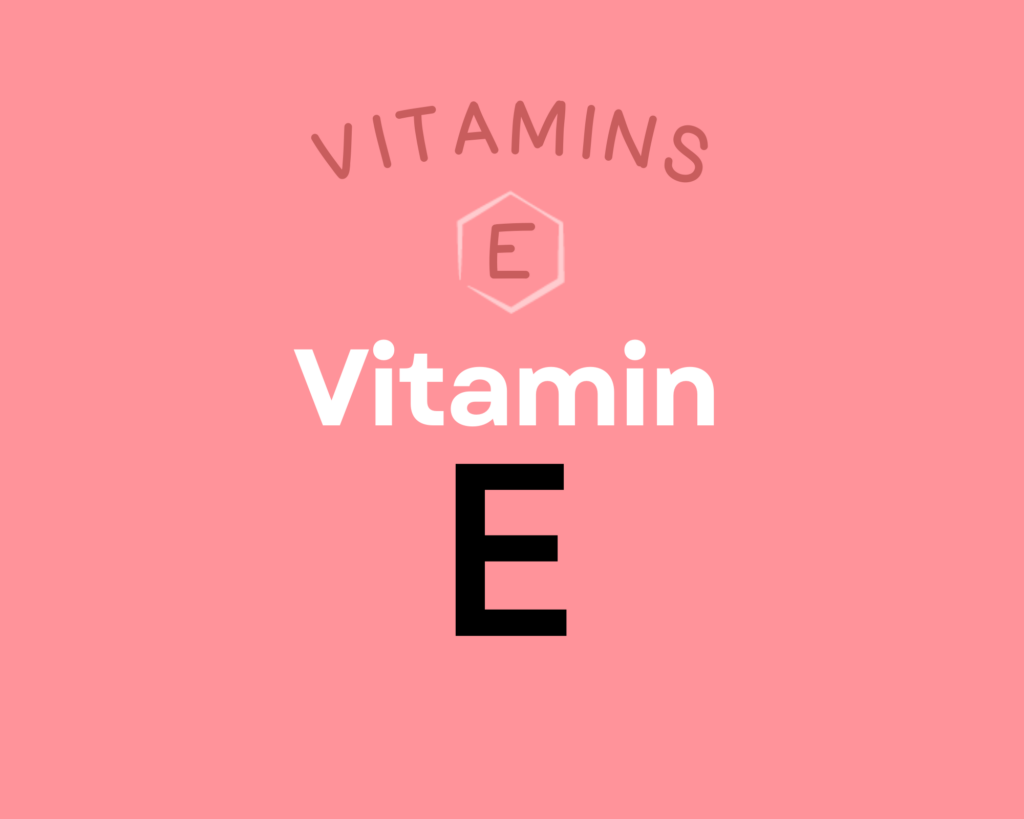
Vitamin E is actually a group of eight different vitamins, though the form alpha-tocopherol is the most biologically important. Its most significant role is as a fat-soluble antioxidant, protecting the lipids in cell membranes from oxidative damage. Its free radical-scavenging abilities make vitamin E helpful for cardiovascular health, cancer protection, neurological health (including slowing the progression of Alzheimer’s disease), and any situations where oxidative stress increases (such as during pregnancy). There’s even evidence that getting enough vitamin E can reduce the risk of the common cold! Learn more about vitamin E here.
Pecans Provide 37% DV Copper
Pecans are an excellent source of copper, providing 37% of the daily value per 1-ounce serving!
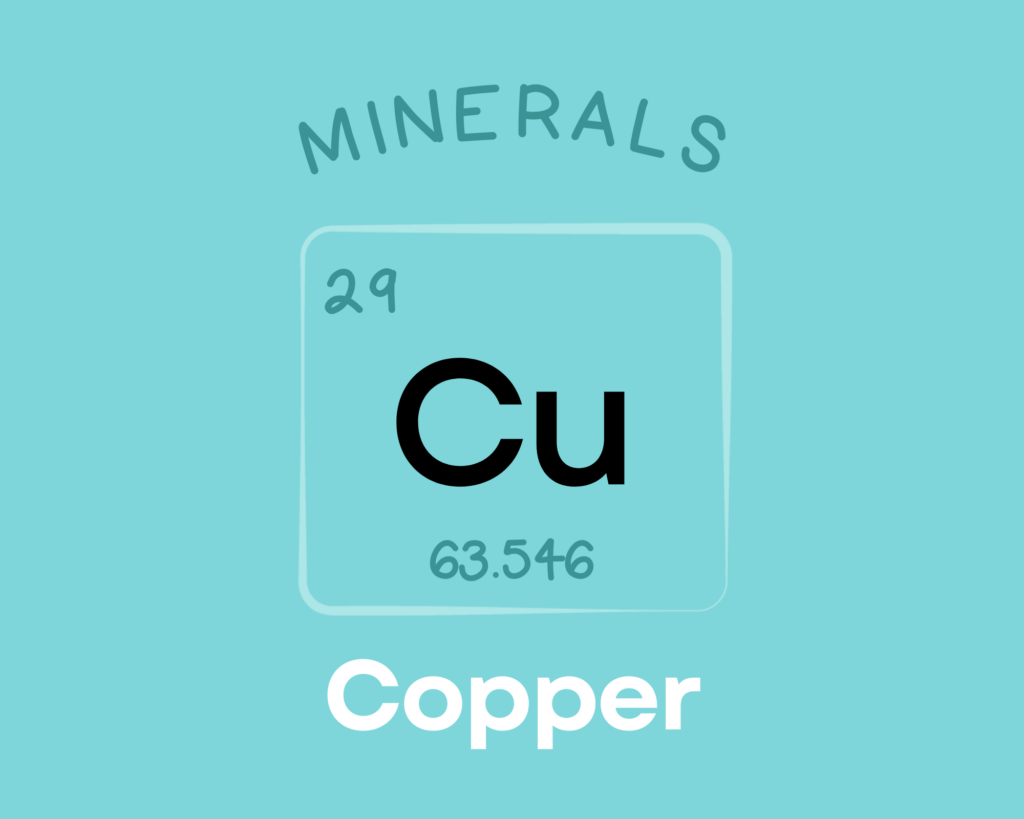
Copper is a trace mineral that’s essential for all living organisms. Copper serves as a component of numerous enzymes and proteins in the body, giving it diverse roles in the growth, development, and maintenance of various organs (including the heart and brain), bone, and connective tissue. Copper is also involved in glucose and cholesterol metabolism, helps regulate gene expression, can scavenge free radicals, and is needed for the production of red blood cells. Learn more about copper here.
Pecans Provide 34% DV Linoleic Acid
Pecans are also an excellent source of linoleic acid, providing 34% of the daily value per 1-ounce serving!
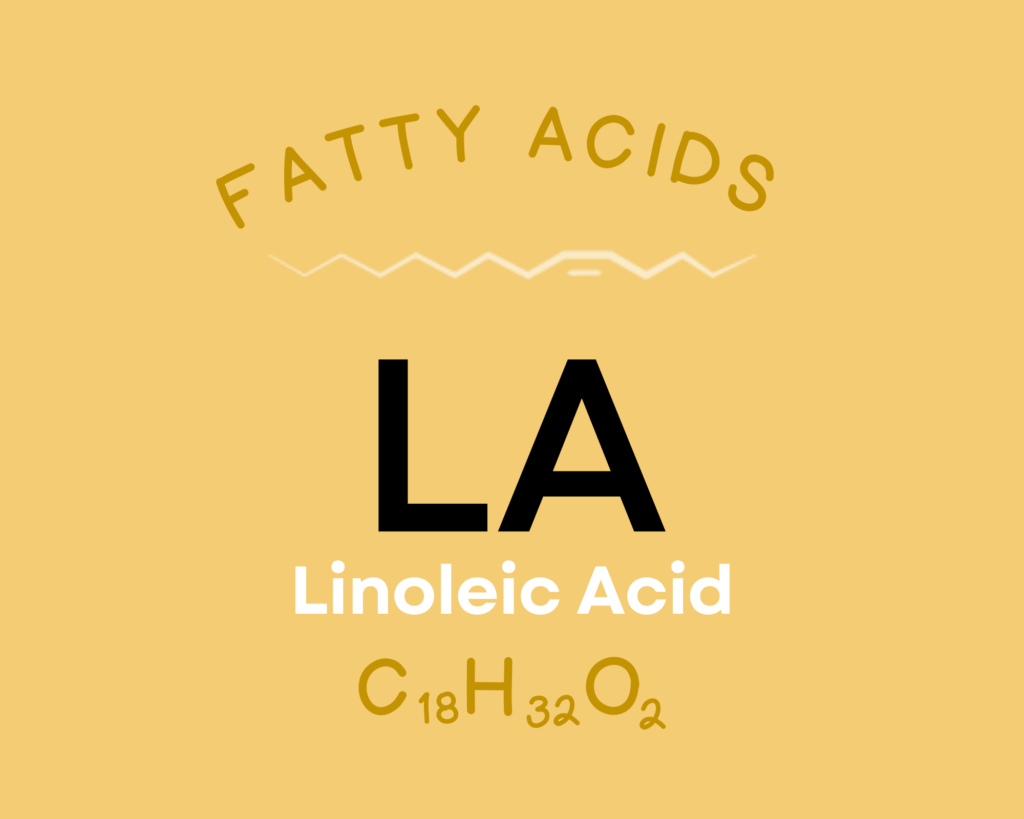
Linoleic acid is the only essential omega-6 fatty acid. Along with being required for human growth and development, it serves as a structural component of cell membranes, plays a role in maintaining skin health and integrity, and is a precursor for bioactive lipid mediators. Although linoleic acid can lower LDL cholesterol levels, research hasn’t consistently shown any protective effect against heart disease. Likewise, there’s mixed evidence (some showing benefit, some showing harm) for the effects of linoleic acid on cancer. Higher intakes have also been associated with depression and obesity, although it may have a protective effect against diabetes. Learn more here.
Pecans Provide 25% DV Vitamin B7 (Biotin)
Pecans are a great source of vitamin B7 (biotin), providing 25% of the daily value per 1-ounce serving!
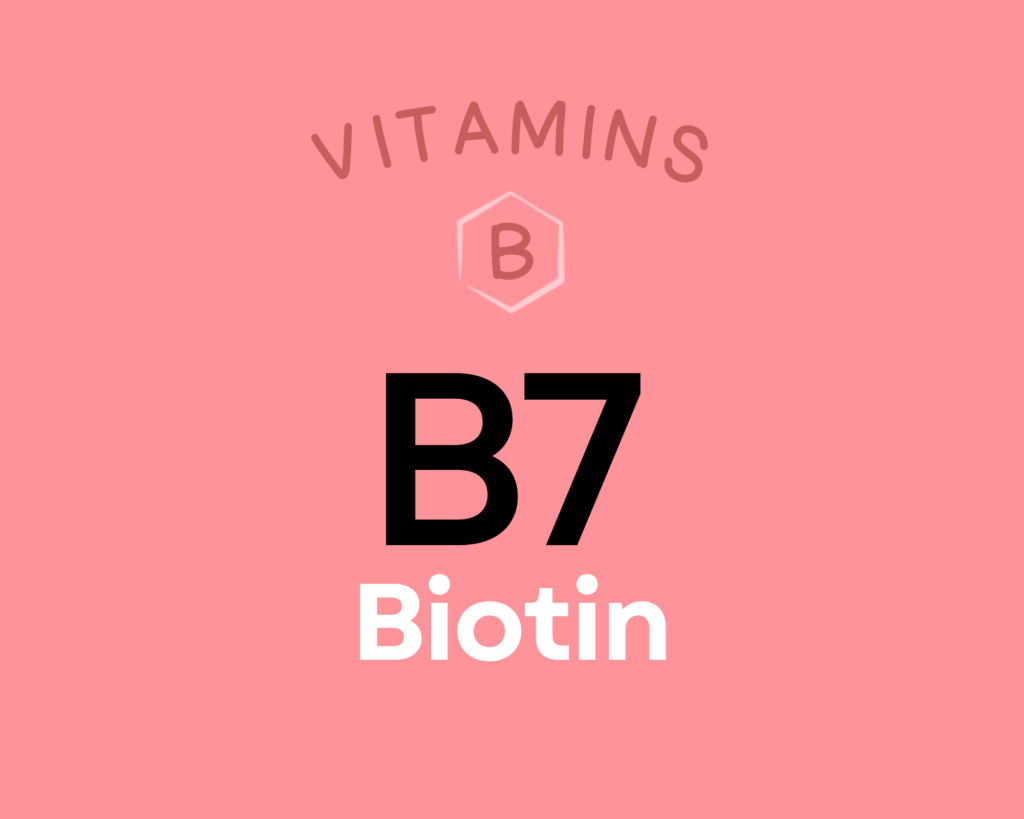
Biotin is a water-soluble B vitamin, also known as vitamin B7. Like other B vitamins, it plays an important role in energy metabolism (serving as a coenzyme for five carboxylase enzymes), neurotransmitter production, cellular function, and the function of various organs. Getting enough biotin can help support healthy nail and hair growth. It’s also particularly important during pregnancy, with low intakes increasing the risk of premature delivery and birth defects. There’s even some evidence biotin can benefit diabetics and reduce functional disabilities in people with multiple sclerosis. Learn more about biotin here.
Want to know the top 500 most nutrient-dense foods?
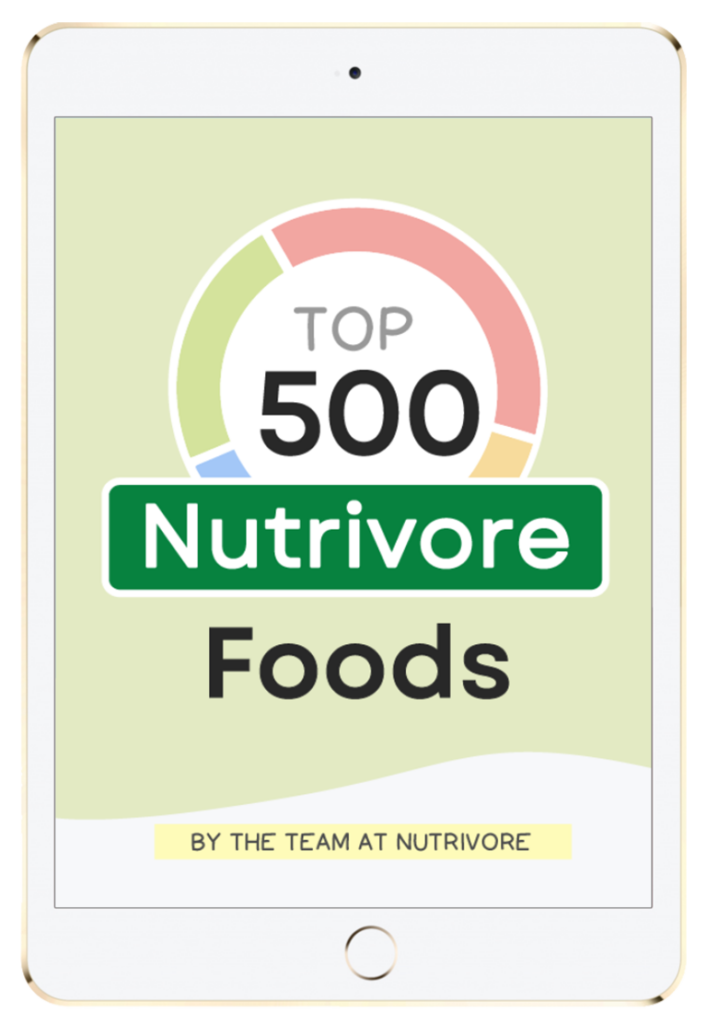
Top 500 Nutrivore Foods
The Top 500 Nutrivore Foods e-book is an amazing reference deck of the top 500 most nutrient-dense foods according to their Nutrivore Score. Think of it as the go-to resource for a super-nerd, to learn more and better understand which foods stand out, and why!
If you are looking for a quick-reference guide to help enhance your diet with nutrients, and dive into the details of your favorite foods, this book is your one-stop-shop!
Buy now for instant digital access.
How Much Pecans Should We Eat Per Day?
Not only do nuts make for a convenient snack food, eating nuts is also associated with a wide range of health benefits! As they say, you can’t spell nutritious without ‘nut’ (if they don’t say that, they should!)
Nuts and seeds are some of the most nutritious, whole-food healthy fat sources out there! They have been associated with lower rates of a variety of chronic diseases and all-cause mortality. In a study of adults at high risk of cardiovascular disease, eating more than three servings of nuts per week resulted in a 39% reduced risk of death from all causes. Nut and seed consumption is also associated with lower body mass index, lower waist circumference, and lower occurrence of type 2 diabetes.
In a meta-analysis encompassing 354,933 total participants, one serving of nuts per day was associated with a 27% reduced risk of all-cause mortality and a 39% reduced risk of cardiovascular disease mortality, and the highest nut consumers saw a 14% reduced risk of cancer mortality. Additional research has shown that nut consumption is associated with lower risk of mortality from respiratory diseases (52% reduced risk), neurodegenerative disease (35% reduced risk), infectious disease (75% reduced risk), and kidney disease (73%).
However, there are some compelling reasons not to “go nuts” on nuts (hyuck, see what I did there?). Health benefits of nut and seeds consumption do not continue to increase beyond about 1 ounce (28 grams) per day, and there’s some evidence that consuming large amounts of nuts daily can increase disease risk (at least for stroke). That means eating more than a palmful per day won’t do us any favors (and may potentially undermine our health). And, nuts should be avoided by people with allergies or sensitivities (in which case, seeds can deliver comparable health benefits).
While not every nut or seed has been extensively studied, we can expect variety to be important. For instance, every nut and seed that has been evaluated in terms of its impact on the gut microbiome shows unique benefits. So again, mix it up as in “mixed nuts!” (Hyuck)
Easily track your servings of Nutrivore Foundational Foods!
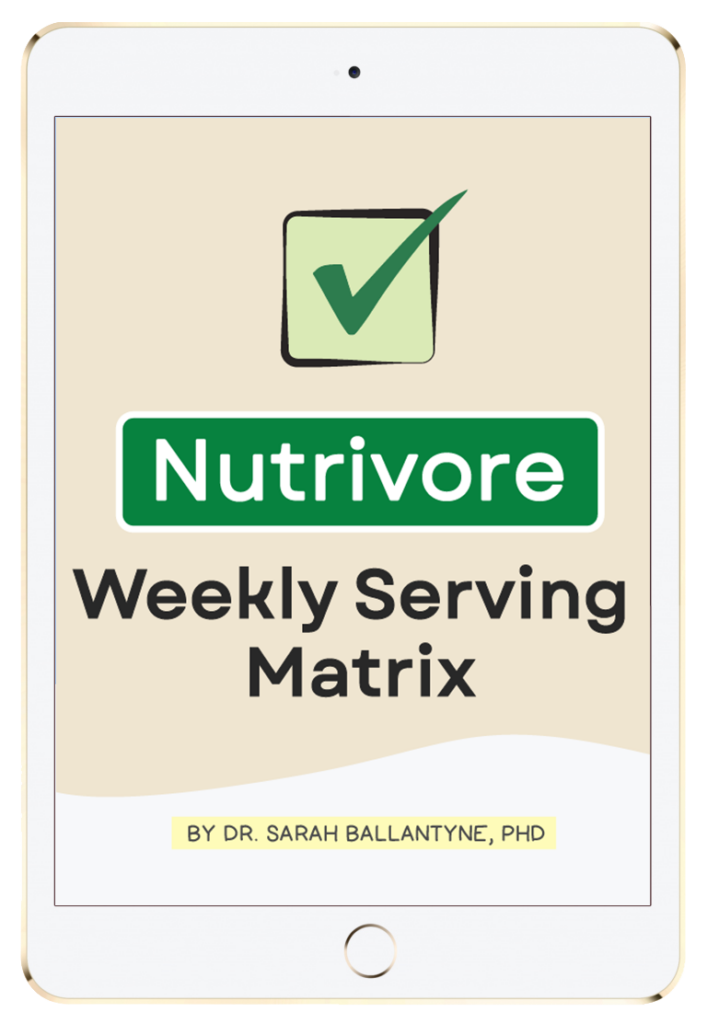
The Nutrivore Weekly Serving Matrix
The Nutrivore Weekly Serving Matrix digital resource is an easy-to-use and flexible weekly checklist designed to help you maximize nutrient-density and meet serving suggestions of Nutrivore foundational foods, all without having to weigh or measure your foods!
Includes a 22-page instructional guide and downloadable interactive guides.
Buy now for instant digital access.
cITATIONS
Expand to see all scientific references for this article.
Phillips KM, Ruggio DM, Ashraf-Khorassani M. Phytosterol composition of nuts and seeds commonly consumed in the United States. J Agric Food Chem. 2005 Nov 30;53(24):9436-45. doi: 10.1021/jf051505h. PMID: 16302759.
Taş NG, Gökmen V. Phenolic compounds in natural and roasted nuts and their skins: a brief review. Current Opinion in Food Science. 2017. Vol 14:103-109. https://doi.org/10.1016/j.cofs.2017.03.001
USDA Food Central Database: Nuts, pecans
Watanabe T, Kioka M, Fukushima A, Morimoto M, Sawamura H. Biotin content table of select foods and biotin intake in Japanese. Int J Anal Bio-Sci. 2014. Vol 2(4):109-125.


